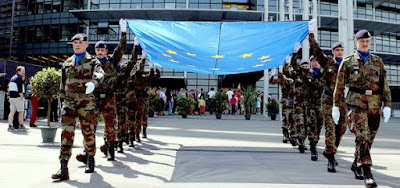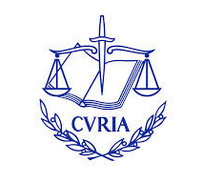Introduction
Common Foreign and Security
Policy (CFSP)
The EU's CFSP was established in 1993 under the Maastricht Treaty. It has been progressively reinforced by subsequent treaties, particularly the Lisbon Treaty (Title V of the Treaty on European Union).
The CFSP is guided by the principles, shall pursue the objectives of, and be conducted in accordance with, the general provisions applicable to the whole external action of the EU. In that respect, it seeks to preserve peace, reinforce international security and promote international cooperation, democracy, the rule of law, respect for human rights and fundamental freedoms.
Since the Treaty of Lisbon entered into force, the EU has legal personality (i.e. it is able to sign international treaties). It also has a diplomatic service, the European External Action Service, which acts under the authority of the EU's High Representative for Foreign Affairs and Security Policy and assists her in fulfilling her mandate (conduct of CFSP, in her capacity as President of the Foreign affairs Council, in her capacity as Vice-President of the Commission for fulfilling within the Commission the responsibilities incumbent on it in external relations). In 2014, Federica Mogherini was appointed as High Representative (HR).
The Political and Security Committee (PSC), comprising ambassadors from the 28 EU countries, also acts under the responsibility of the HR. It monitors the international situation in the areas covered by the CFSP and plays a key role in defining and following up the EU's response to a crisis.
EU Member states have
committed themselves to a Common Foreign Security Policy for the European
Union. The European Security and Defence Policy aims to strengthen the EU's
external ability to act through the development of civilian and military
capabilities in Conflict Prevention and Crisis Management.
To influence policies violating international law or human
rights, or policies disrespectful of the rule of law or democratic principles,
the EU has designed sanctions of a diplomatic or economic nature.
The EU is also a leading international actor in the fight
against illicit accumulation and trafficking of small arms and light weapons.
EU foreign and security policy,
which has developed gradually over many years, enables the EU to speak and act
as one in world affairs. Acting together gives the EU's 28 members far greater
clout than they would have if each pursued its own policies.
EU
foreign and security policy seeks to
- preserve peace & strengthen international security
- promote international cooperation
- develop & consolidate
- democracy
- the rule of law
- respect for human rights & fundamental freedoms.



Comments
Post a Comment